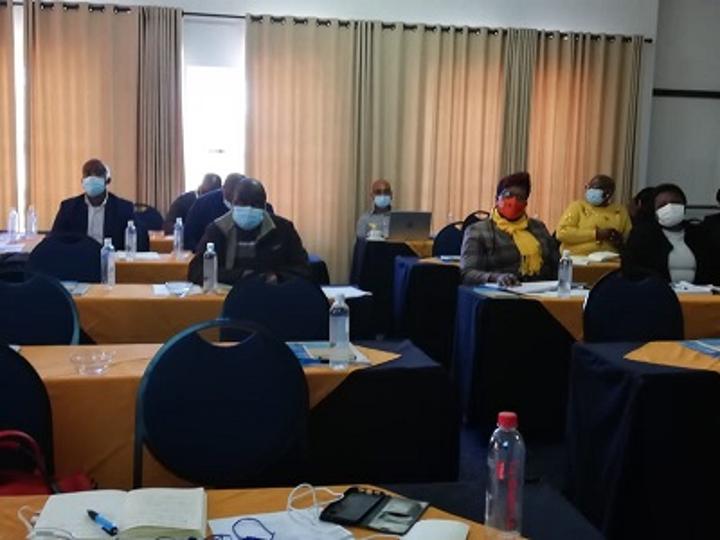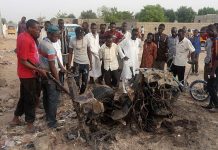Africa-Press – Lesotho. The Ministry of Law and Justice, the Ministry of Gender, Youth, Sports and Recreation with the support from the United Nations Development Programme (UNDP) and Office of the High Commissioner for Human Rights (OHCHR) held a high
level workshop on Human Rights Treaty Reporting and establishment of the national mechanism for reporting. Speaking at the workshop Acting Attorney General Advocate Ntebaleng Maseela, said the
workshop aims to ensure and pave way for all stakeholders in the human rights discourse to comprehend and have full appreciation of Lesotho’s obligations
under the various treaties that she is a state party to. She further said the objective of the workshop is to further hold discussions on the necessity of
establishing a standing national mechanism that will be responsible for the compilation of state party reports under such treaties as well as track progress on the implementation of recommendations.
Maseela noted that Lesotho is a state party to the major international human rights instruments which include amongst others the two founding covenants on civil
and political rights and economic, social and cultural rights, the convention against torture, the convention on the rights of the child, the convention on
the elimination of all forms of discrimination against women and others. “All these impress on the respect of the inherent human dignity, non-discrimination
and equality, fairness, liberty and life regardless of one’s race, language, religion, social, political rank or status but subject to the constitution and
other national laws,” she said. The 1993 constitution of Lesotho, in its chapter II guarantees the respect, promotion and protection of these rights subject to the limitations that are
laid down by law. Maseela further said the Vienna Declaration and Programme of Action affirmed that human rights whether civil, political, economic social or
cultural are universal and indivisible. She said states have a duty to respect, protect and fulfil these human rights and fundamental freedoms within their own
political, economic and cultural systems. “The State therefore plays a crucial role in ensuring access to these rights. The State and its formal institutions are the final guarantors of rights for
citizens and non-citizens and have the primary responsibility to ensure that all those who live within their jurisdiction have access to all the rights to
which they are equally entitled,” Maseela said. She said it is evident that by ratification or accession, Lesotho has assumed obligations and duties under
international law to report on the domestic implementation of the various conventions. She added that State party reporting process creates opportunity for
self-assessment, review and evaluation to ensure compliance with legislations, policies and practice with the human rights obligations. She said the involvement of government representatives, experts and civil society
groups in reporting and other processes generates a genuine dialogue at the national level that improves laws, policies, programmes and institutions. “Lesotho
is one of the leading countries in Southern Africa with a remarkable record of ratifications, however, she is lagging behind in her reporting obligations,”
she noted. She said this is a challenge that they have acknowledged at the various treaty making bodies. Adv. Maseela indicated that some of the challenges that they face is lack of
specialized personnel and or body dedication to reporting. “A recommendation to establish a National Mechanism on Reporting and Follow-up (NMRF) has been
recommended by the office of the High Commissioner for Human Rights (OHCHR) after it identified that current ad-hoc method of reporting challenged Lesotho
and was one of the contributing factors to the present existing backlog of reports. A number of missions have been undertaken by OHCHR to Lesotho to assist in the establishment of NMRF”.
For More News And Analysis About Lesotho Follow Africa-Press






